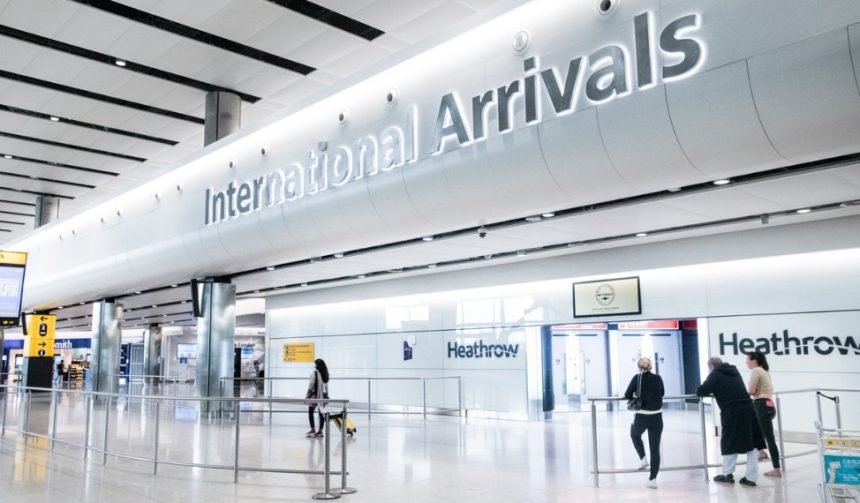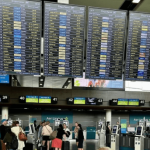Thousands of passengers were left stranded on Saturday after a cyber-attack hit a critical airline check-in system used at Heathrow, Brussels, and Berlin airports.
The disruption stems from a breach at Collins Aerospace, the firm behind the Muse software that powers check-in and boarding services for several major airlines.
The digital assault left airline staff scrambling to manage flights manually, with pen-and-paper baggage tags, handwritten boarding details, and long queues, causing widespread delays and cancellations.
Travellers Advised to Double-Check Flights
UK Transport Secretary Heidi Alexander confirmed she is monitoring the ongoing situation.
“I’m aware of an incident affecting airline check-in and boarding, impacting flights at Heathrow and other European airports. I’m getting regular updates and monitoring the situation. If you’re flying at Heathrow today, check with your airline before travelling,” she said.
A Heathrow spokesperson echoed the caution, urging passengers not to arrive earlier than three hours before long-haul flights or two hours before domestic trips.
What’s Behind the Meltdown?
The issue centres on the Muse system, a key software tool developed by Collins Aerospace — a subsidiary of RTX. While RTX often advises other firms on cybersecurity and military systems, this incident has exposed serious vulnerabilities in its civilian infrastructure support.
According to Collins, “We have become aware of a cyber-related disruption to our Muse software in select airports. We are actively working to resolve the issue and restore full functionality to our customers as quickly as possible.
The impact is limited to electronic customer check-in and baggage drop and can be mitigated with manual check-in operations. We will share more details as they are available.”
Europe-Wide Impact: Manual Mode Engaged
Brussels Airport reported the cyber-attack occurred late Friday night, forcing airport staff to revert to manual operations.
“This has a large impact on the flight schedule and will unfortunately cause delays and cancellations of flights,” a Brussels spokesperson said.
Berlin Airport, too, confirmed it was experiencing “longer waiting times at check-in” and assured passengers that teams were working on a fix.
Cybersecurity Experts Raise the Alarm
Professor Alan Woodward, a leading cybersecurity expert from the University of Surrey, said the attack highlights how dependent European airports are on centralised systems like Muse.
He raised two concerns:
- Centralised vulnerability – If Collins had to shut the system down entirely to fix it, that would explain the scale of disruption.
- Limited spread – so far – While Muse is used in numerous airports, only three have reported outages. Woodward suggested this may indicate that the attackers have only targeted a portion of the system, but more disruptions could follow if they widen the assault.
“Disruption’s going to be enormous,” he warned.
Traveller Testimony: “We Were Cheesed Off”
Maria Casey, a backpacker from Aldershot, was en route to Krabi, Thailand, via Abu Dhabi. Her Etihad flight from Heathrow was delayed, and she found herself stuck in a three-hour queue at baggage check-in.
“Only two desks were staffed, which is why we were cheesed off,” she told PA. “Didn’t know then it was a cyber-attack until four hours later.”
Why This Matters – And What Could Be Next
- Critical infrastructure is under pressure. Airports depend on digital systems more than ever — and this attack proves they can be vulnerable in unexpected ways.
- Holidaymakers and business travellers alike face uncertainty. Disruption could spill into the coming days if the system isn’t fully restored soon.
- Cybersecurity questions loom large. With RTX/COLLINS advising on military systems as well, confidence in their resilience is now being scrutinised.
What You Should Do:
- Check your flight status directly with your airline.
- Avoid early arrivals unless your flight is confirmed.
- Be prepared for delays and longer queues.
This is a developing story. Stay tuned for updates as we continue to follow how this cyber-attack is unfolding across Europe’s skies.






